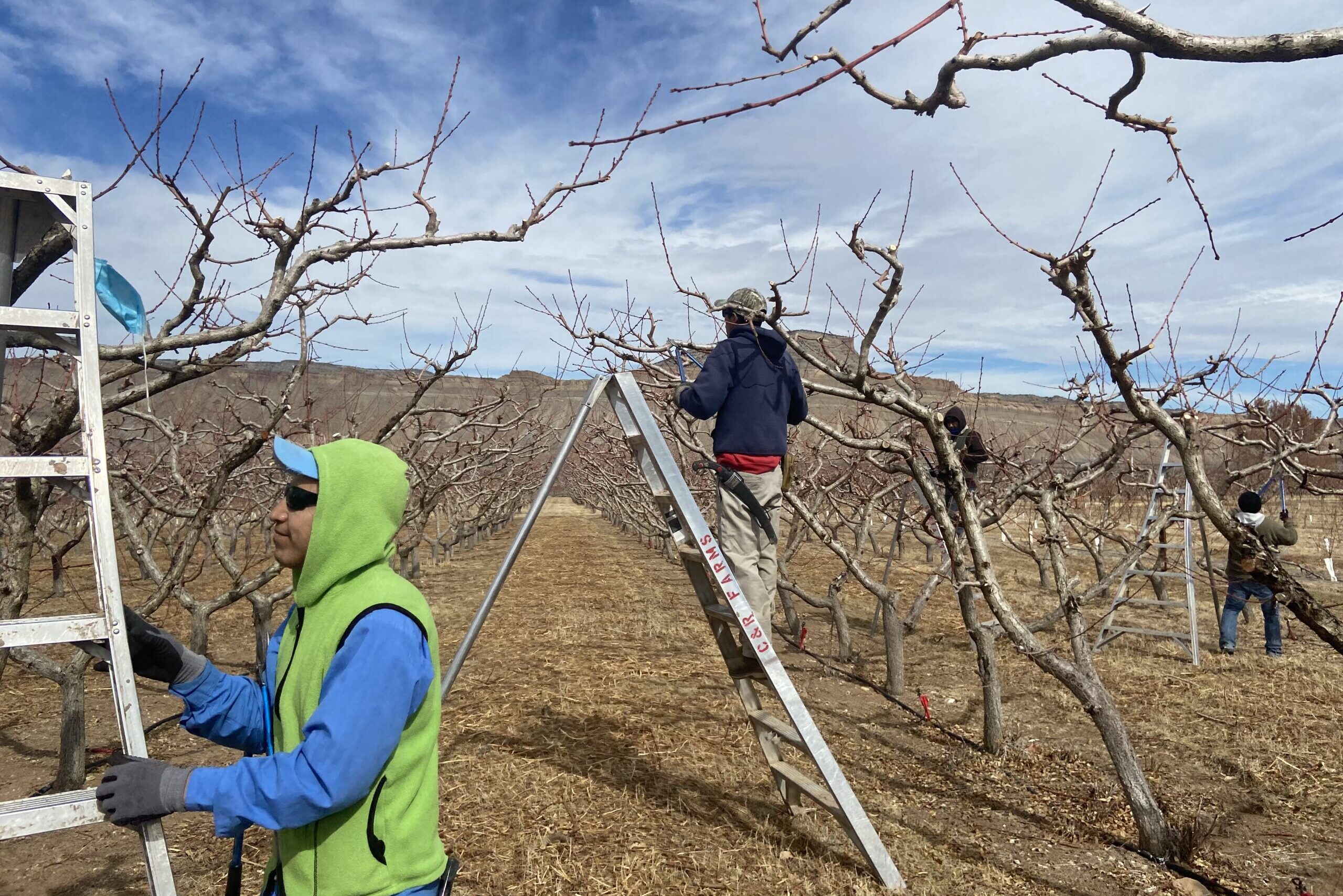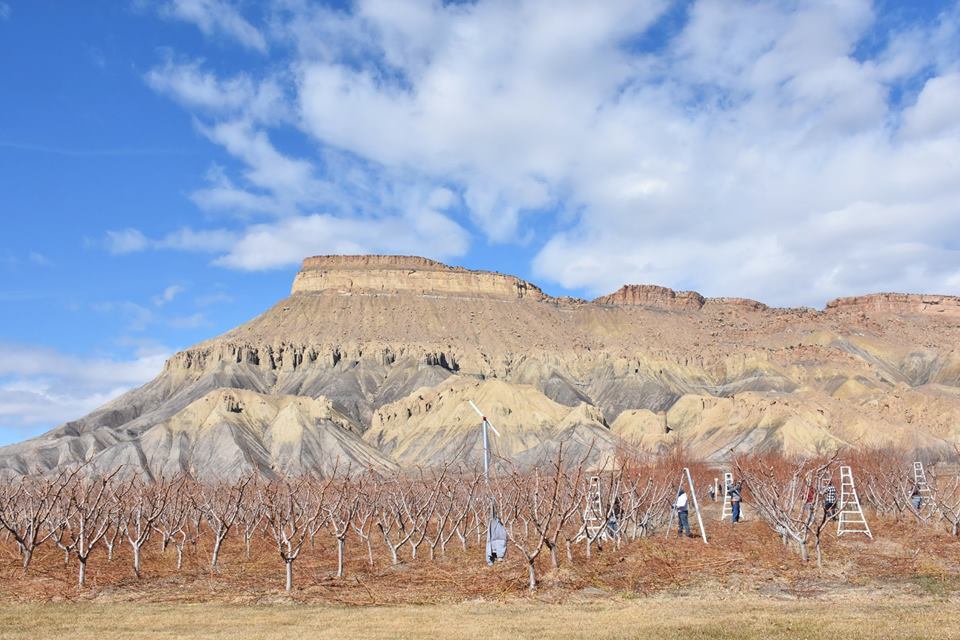
Last March, Mesa County was still bracing for impact.
Cases of COVID-19 had started to spark in resort communities and along the Front Range, but this rural swath of the Western Slope was largely untouched.
Within months, however, it would have one of the highest coronavirus infection rates in Colorado.
Maria Frausto remembers the emotional toll that took on local migrant workers, as well as the valley’s settled immigrant families.
“Everyone was afraid,” she said.
Frausto, who’s originally from Mexico, works part-time at Child and Migrant Services, a Palisade nonprofit. She’s the kind of person who gives out her phone number to anyone she thinks might need it, so she heard firsthand how devastating COVID-19’s hold on the area was last fall and heading into the new year.
“Whole families get the virus,” she said. “I [got] the virus. I [got] the COVID.”
She recovered. So did her family after most of them got it. But she knows that many people were not that lucky. The seasonal workers who didn’t get sick still faced choking wildfire smoke in the summer. And last spring and fall, punishing cold snaps devastated crops.
“Everything was frozen, so yeah, it was no work, no money, no job. Nothing,” Frausto said.

Child and Migrant Services is a small organization, but director Karalyn Dorn explained they’re doing as much as they can to help families and workers affected by the pandemic. That includes sharing information about health-care services and giving out donated food and clothes. Every Wednesday, they make and distribute about 150 free meals.
“It’s such a good feeling to give a plate of homestyle food to someone that you know has been working so hard in the orchards all day,” Dorn said.
Before the pandemic, those weekly meals would be like a big family gathering, with workers sitting side-by-side at tables in the nonprofit’s front room. Now all the food is delivery and to-go only.
- Colorado’s Undocumented Immigrants Have Been Shut Out Of Benefits And Licensed Jobs For 15 Years. A New Bill Would Change That
- Immigration Advocates Say DMV Shared Data With ICE That Led To Arrests. Colorado Lawmakers Don’t Want It To Happen Again
- Refugee And Immigrant Women Show Promise As A Pipeline For New Colorado Early Childhood Educators
- Undocumented Immigrants Face Different Pandemic Struggles And A Complicated Web Of Resources
Dorn misses that feeling of togetherness, but she is grateful the nonprofit has been able to continue its work. A year ago, she didn’t know if that would be possible, with the pandemic stripping away their fundraising events. Support from Mesa County, and far beyond, has made all the difference.
Some individuals and organizations in other parts of the country “recognized us, kind of found us, because of the new interest in farm workers as essential workers,” she said.
She’s received donations that range from big foundation grants to a $5 bill wrapped in a coffee filter and left in the organization’s dropbox. Child and Migrant Services has even been able to expand its offerings a bit, now funding modest grants for workers to send money home to their families.
“It’s really a tribute to this community, how generous people have been and continue to be,” Dorn said.
But Dorn said she knows there are still more workers out there who need help, and there’s no telling what challenges a new growing season will bring.









